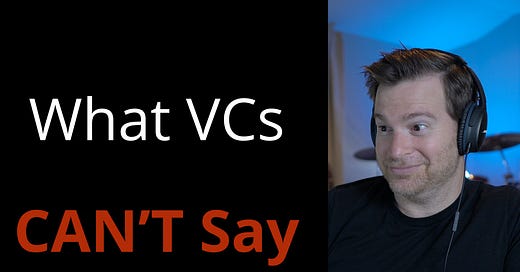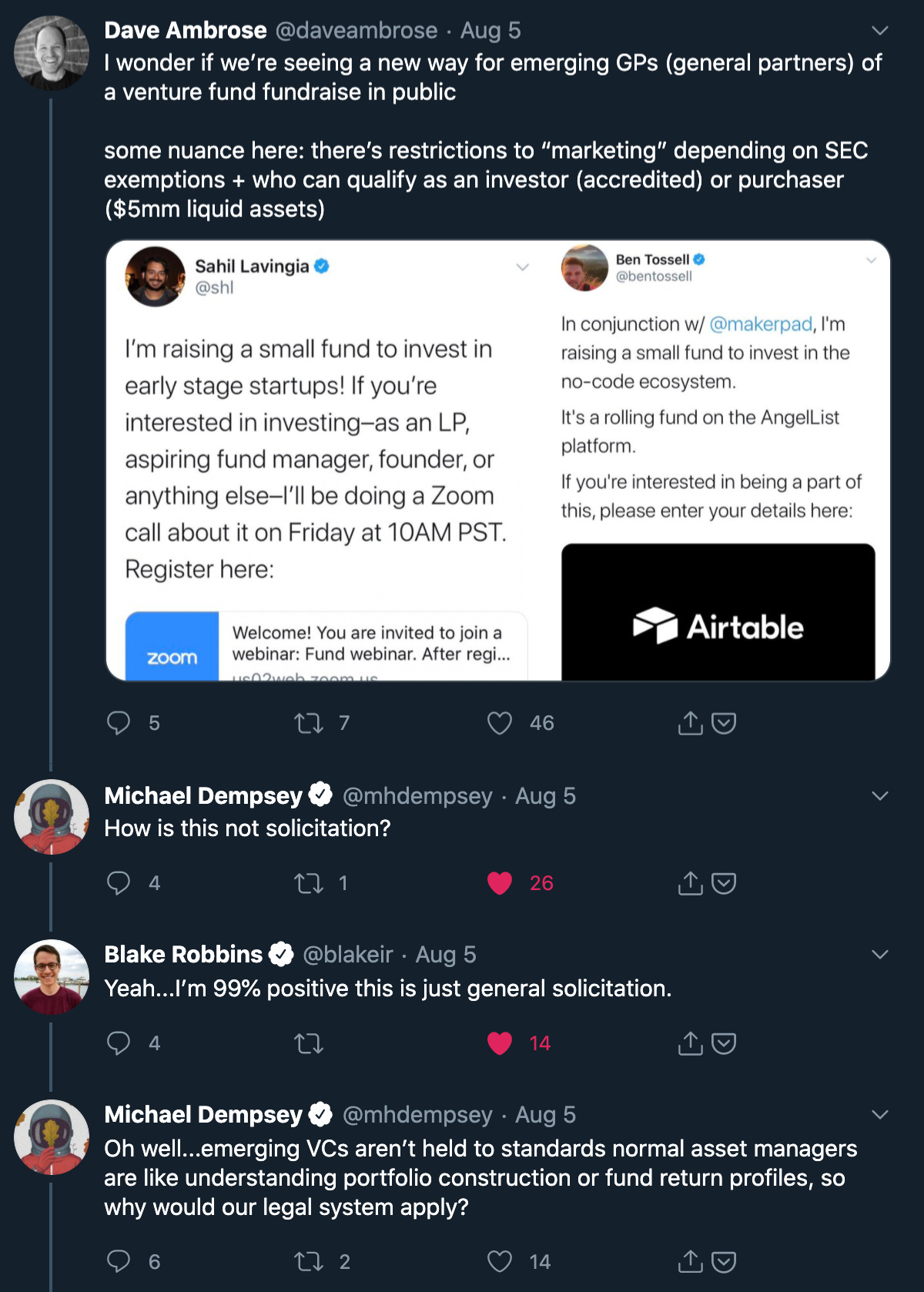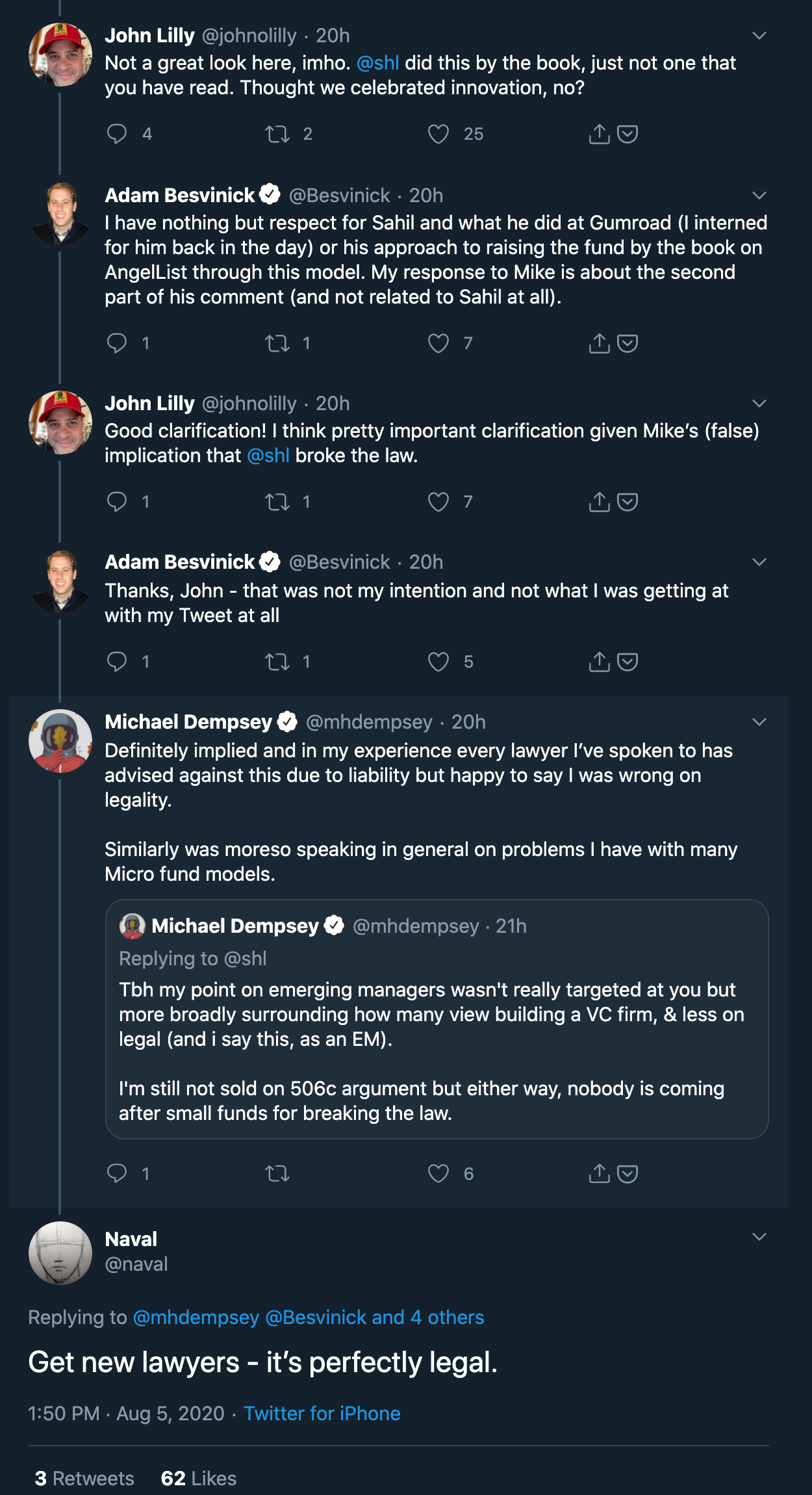What VCs Can't Say
I’m reminded of a comedy sketch from Trevor Moore where he says “Did you know it’s illegal to say ‘I want to kill the president of the United States of America’?”
It’s funny because he plays with the line of what you can and can’t say. I took extra care with the quotation marks there. It turns out there are rules about what VC funds can and can’t say in public.
A VC won't say "We're raising our next fund" because it is considered a general solicitation.
But this is now evolving. AngelList is a backend for many syndicates and funds, and recently got press about their Rolling Funds. The founder of GumRoad, Sahil Lavingia, who has a sizable Twitter following, just raised one of these rolling funds. He even had a zoom call to answer a bunch of questions about it. Here is the TechCrunch story.
What is the difference? The SEC rules that govern this are 506(b) vs 506(c). Read more here.
The basic difference is that under 506(c) you can make a public solicitation but only if:
“The investors in the offering are all accredited investors; and”
“The company takes reasonable steps to verify that the investors are accredited investors, which could include reviewing documentation, such as W-2s, tax returns, bank and brokerage statements, credit reports and the like.”
An accredited investor is someone who essentially has enough money to be considered sophisticated. The 506-c rule means you need to verify this with evidence like bank statements. This is an extra burden that VCs don’t normally want to put on their LPs. (LPs are “limited partners” who invest in VC funds).
This is new, so even some VCs are surprised. See this twitter thread, copied below.
The reasons for these rules are so that unscrupulous actors don’t take advantage of unsophisticated investors. Many startups go to zero, and many VCs actually don’t beat the broader market in returns.
The problem is growth. Generally, tech companies are providing some of the only fertile ground for fast-growing companies. And now the pandemic has impinged businesses that need a physical presence. But companies are going public later and later. What this means is that Main St investors are not able to leverage that growth. Many LPs in VCs are funds that help Main St like university endowments that fund college scholarships or pension funds that fund a comfortable retirement.
I welcome more people who are sophisticated enough who can have access to this growth. The most populous group will be people that work in tech, whose high salaries help fund just a bit of investing.
I like to imagine where this can go. For example, what if Y Combinator only needed to raise their next fund from successful YC founders? Then the upside of the whole ecosystem goes to those who are building it.
Please head over to YouTube and subscribe to my channel to get future videos.





